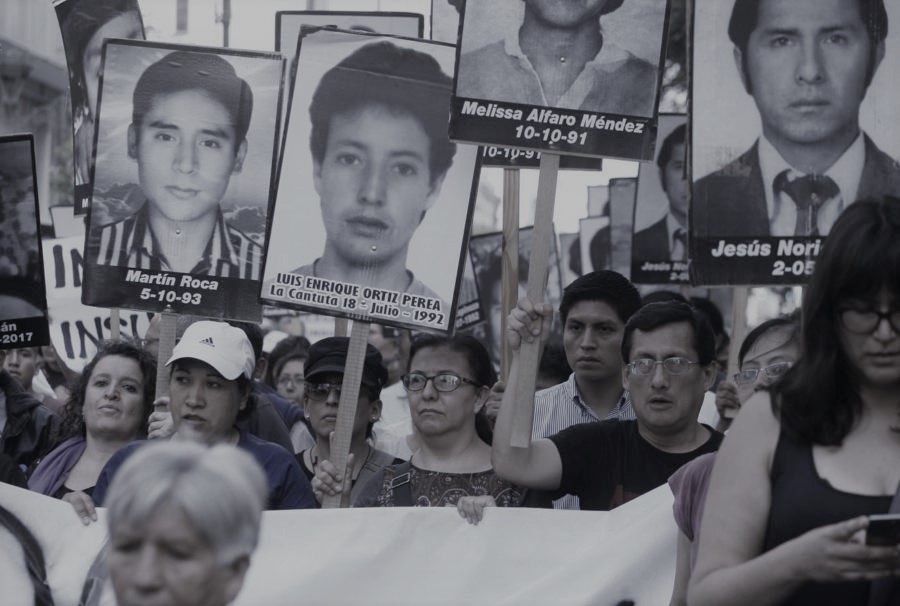






Since the Christmas Eve pardon of Peruvian former President Alberto Fujimori, who was convicted in Peru for crimes against humanity in relation to forced disappearances, extrajudicial executions, and corruption, human rights advocates have been strategizing a response.
Within Peru, President Kuczynski angered even members of his own party with the pardon. Coming on the heels of a close vote to remove the President from power for ties with the Odebrecht corruption scandal, Kuczynski was saved by ten votes from former President Fujimori’s son Kenji’s political allies. As news of hospital visit logs, medical records, and Fujimori allies sitting on the pardon committee emerged, the decision resonated loudly as a corrupt political bargain. Unfortunately, given the discretion and authority presidential pardons carry, victims and advocates faced limited options.
However, a group of attorneys who represented victims before international human rights tribunals mobilized to raise the issue before the Inter-American Court of Human Rights. The Court has played a key role in the Americas precisely in situations such as these, where local justice systems served to propagate impunity.
As part of a pair of Inter-American Court decisions against Peru, Barrios Altos in 2001 and La Cantuta in 2006, Peru was ordered to overturn its amnesty laws, investigate forced disappearances, and adequately punish those found responsible. Such grave violations of human rights were ultimately traced to Fujimori himself, who was sentenced by a domestic Peruvian court in 2007 to 25 years in prison. These national processes, carried out in part to comply with the international decisions, marked the historic first time that a former President was tried and imprisoned for crimes against humanity in his own country.
These same attorneys now argued that the presidential pardon violated the terms of the earlier Inter- American Court decisions, obligating Peru to adequately punish those responsible for grave violations of human rights. As a result, the Inter-American Court will hold a public hearing on February 2, in Costa Rica, to hear the representatives’ arguments and determine whether Peru defied the orders in the Barrios Altos and Cantuta decisions.
So what can Peru and the region expect? Media across the Americas has stated the Inter-American Court will be reviewing the pardon, and in a sense, this is true. The pardon allowing Fujimori to escape the punishment the Peruvian system determined to be adequate is the focal point of the hearing.
However, the Inter-American Court is not a national court, and does not have the jurisdiction to sentence Mr. Fujimori to criminal penalties. This does not mean that Fujimori should not be worried, though. Within the framework of supervising compliance of its cases, the Inter-American Court could order the Peruvian government to leave the pardon without effect, as it has done with amnesty laws throughout the Americas, and other domestic legal decisions that violate human rights obligations.
The Inter-American Court hearing also comes as Peru prepares to host the April Summit of the Americas, aptly focused on “Democratic Governance against Corruption”. Governments of the region, advocates for the rule of law, and Fujimori’s victims will all be watching to see how serious President Kuczynski, and other branches of the Peruvian government, are in the fight against corruption and the respect of international law. By April, the attorneys hope that the Court will have issued a decision.
Co-written by Elsa Meany, Senior Attorney at CEJIL.
The Barrios Altos and La Cantuta cases were litigated before the Inter-American Court of Human Rights on behalf of family members of the killed and disappeared by the Center for Justice and International Law (CEJIL), Asociación pro Derechos Humanos (APRODEH), La Coordinadora Nacional de Derechos Humanos del Perú, Comisión de Derechos Humanos (COMISEDH), Fundación Ecuménica para el Desarrollo y La Paz (FEDEPAZ) y el Instituto de Defensa Legal (IDL).
Help us continue this critical and urgent work with a donation!
DONATE NOW